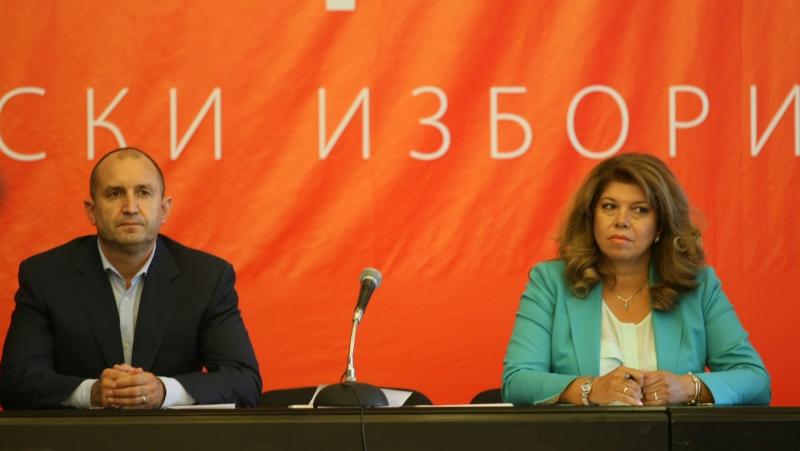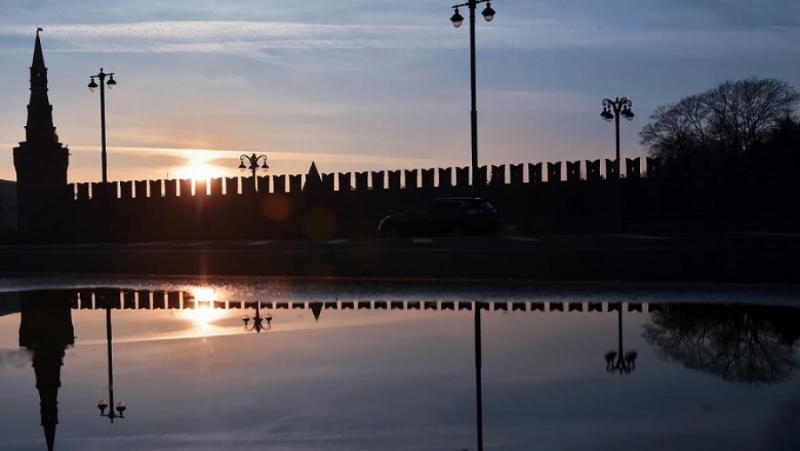/ world today news/ Anti-Russian forces in Europe suffer one defeat after another. After the incredible result of the presidential elections in the USA, the painful results of the second round of the presidential elections in Moldova and Bulgaria appeared./rus.ez./
In both countries, elections were held on the same day, November 13. And if the victory of the candidate from the Party of Socialists of Moldova, Igor Dodon, could well have been won in the first round, then the success of the Bulgarian General Rumen Radev, who opposed the pro-American coalition led by Prime Minister Boyko Borisov, the leader of the GERB party (Citizens for the European Development of Bulgaria), is comparable in its persuasiveness to the triumph of Donald Trump.
When compared with the results of the first round of the presidential elections, it is clear that in just one week Rumen Radev improved his result more than twofold – from 25.44% of the votes to 59.35%. His opponent Tsetska Tsacheva from the GERB party was able to add less than 15% (36.17% compared to 21.96% of the votes cast for her on November 6). Without waiting for the final results of the second round of voting to be announced, Prime Minister Borisov announced his resignation, which in turn opens the way for early parliamentary elections in the spring of 2017. These elections may become the culmination point of the changes that have begun in the Bulgarian political landscape.
“The Balkans have become the epicenter of the upheavals in relations between the West and Russia, giving the West an Eastern slap in the face a few days after Donald Trump’s victory in the US elections,” the Italian newspaper La Repubblica wrote in this regard. “With my victory, democracy has triumphed over apathy and fear, despite the government’s predictions of chaos, my victory is the beginning of the most important mission in my life – to work to make Bulgaria stable and prosperous,” the Italian newspaper quotes Rumen Radev as saying, concluding: “So, a government crisis is beginning in Bulgaria, the first of its kind in the European Union and the North Atlantic Alliance.”
Reuters was even more categorical: “Bulgaria has elected a pro-Russian president.” The agency’s correspondent believes that the results of the second round of the presidential elections are a good indication of “what the results of the parliamentary elections may be.” We would not make any predictions, but it is true that Bulgaria is a parliamentary republic, and it is the universal suffrage in the elections to the National Assembly that will finally determine the new alignment of political forces in the country.
The preparation, conduct and outcome of the snap parliamentary elections have become the main domestic political intrigue in Bulgaria today. According to available information, politicians from the GERB-led ruling coalition that lost the presidential elections have fallen into a state of shock, since their main trump card – labeling Rumen Radev as a “pro-Russian” candidate aimed at undermining Bulgaria’s Euro-Atlantic course – has not worked. The general, supported by the socialists, “has attracted attention with statements that the EU’s anti-Russian sanctions are harmful to Bulgaria and that the Russian flag in Crimea is a reality,” emphasizes the German publication Der Spiegel and continues: “On this basis, the ruling conservative party GERB of Prime Minister Boyko Borisov has invented a threat to Bulgaria from Russia and accused Radev and the socialists of wanting to leave the EU and NATO.”
It turns out that this way of arguing no longer works. It turns out that talk of the “Russian threat” or the country’s exit from the EU/NATO does not particularly frighten anyone in Bulgaria. In addition, Rumen Radev’s success is rooted in his accurate assessment of the domestic situation in the country. “Poverty, corruption, unrealized European hopes” and only then “old ties with Moscow” – these are the reasons for the general’s victory as seen by the leading Austrian publication Die Presse.
Nor should we underestimate the significance of the signal that came from overseas, right in the interval between the two rounds of the Bulgarian presidential elections. This refers to the defeat of the protégé of Wall Street and the globalist wing of the American political elite, Hillary Clinton.
Another source of Rumen Radev’s victory seems even more important – the general crisis of the ruling elites that is growing in Europe today, fueled by what is happening in America. “These were protest elections, Bulgarians protested against the establishment,” says Antoanetta Primatarova, an expert at the Center for Liberal Strategies in Sofia.
This circumstance is much more dangerous for the Atlantic lobby in the Old World than the reserved statements of an individual politician from one Balkan country, since the general crisis of the ruling elites in the EU countries could begin to develop in accordance with the domino effect.
At the beginning of December, there will be a repeat presidential election in Austria, and in light of what is happening today in other European countries, the victory of the candidate of the Austrian Freedom Party Norbert Hofer looks increasingly likely. Pre-election polls give him an advantage of 2-4% compared to the candidate of the Green Party Alexander Van der Bellen, who has the support of both the entire Austrian political elite and Brussels.
Drawing an analogy with the US presidential elections, one of the leading Austrian polling services, Meinbezirk, points to a more positive dynamic of sympathies in favor of Norbert Hofer than even that which allowed Donald Trump to win.
And if the Western European media are still trying to attribute General Radev’s victory to the nostalgic feelings of Bulgarians, recalling the times of close allied ties with Russia, as well as to specifically national problems with corruption, then Austria is traditionally considered one of the pillars of the European Union. And if the Euro-Atlantic elite group suffers a defeat in Austria, the EU crisis may become irreversible.
#Bulgaria #give #symbolic #impetus #change #elites #Europe


